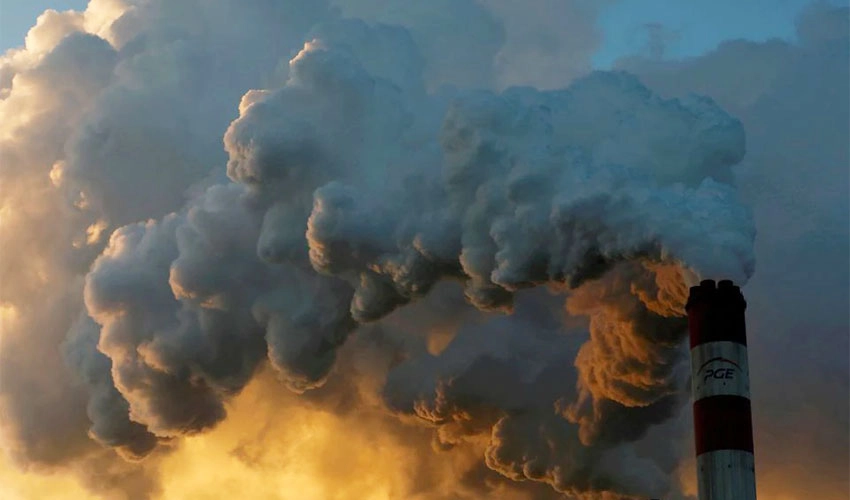EU strikes deal on world-first carbon border tariff

BRUSSELS (Reuters) - After all-night negotiations, the European Union struck a political deal on Tuesday to impose a carbon dioxide emissions tariff on imports of polluting goods such as steel and cement, a world-first scheme aiming to support European industries as they decarbonise.
Negotiators from EU countries and the European Parliament reached a deal at around 5am in Brussels, on the law to impose CO2 emissions costs on imports of iron and steel, cement, fertilisers, aluminium and electricity.
Companies importing those goods into the EU will be required to buy certificates to cover their embedded CO2 emissions. The scheme is designed to apply the same CO2 cost to overseas firms and domestic EU industries - the latter of which are already required to buy permits from the EU carbon market when they pollute.
Mohammed Chahim, European Parliament's lead negotiator on the law, said the border tariff would be crucial to EU efforts to fight climate change.
"It is one of the only mechanisms we have to incentivise our trading partners to decarbonise their manufacturing industry," Chahim said.
The aim of the levy is to prevent European industry from being undercut by cheaper goods made in countries with weaker environmental rules.
It will also apply to imported hydrogen, which was not in the original EU proposal but which EU lawmakers pushed for in the negotiations.
Some details on the law, including its start date, will be determined later this week in related negotiations on a reform of the EU carbon market.
Currently, the EU gives domestic industry free CO2 permits to shield them from foreign competition, but plans to phase out those free permits when the carbon border tariff is phased in, to comply with World Trade Organisation rules. How quickly that phase-in happens will be decided in the carbon market talks.
Brussels has said countries could be exempted if they have equivalent climate change policies to the EU, and suggested the United States could dodge the levy on this basis.
Still, the EU plan has faced criticism from countries including China, and comes amid heightened trade tensions with the United States over the Inflation Reduction Act's subsidies for green technologies, which the EU has said could disadvantage European firms.
The tariff is part of a package of EU policies designed to help the world avoid disastrous climate change by cutting EU emissions 55% by 2030 from 1990 levels.







